‘Historic moment’ on reparations occurs at Mills College at Northeastern University
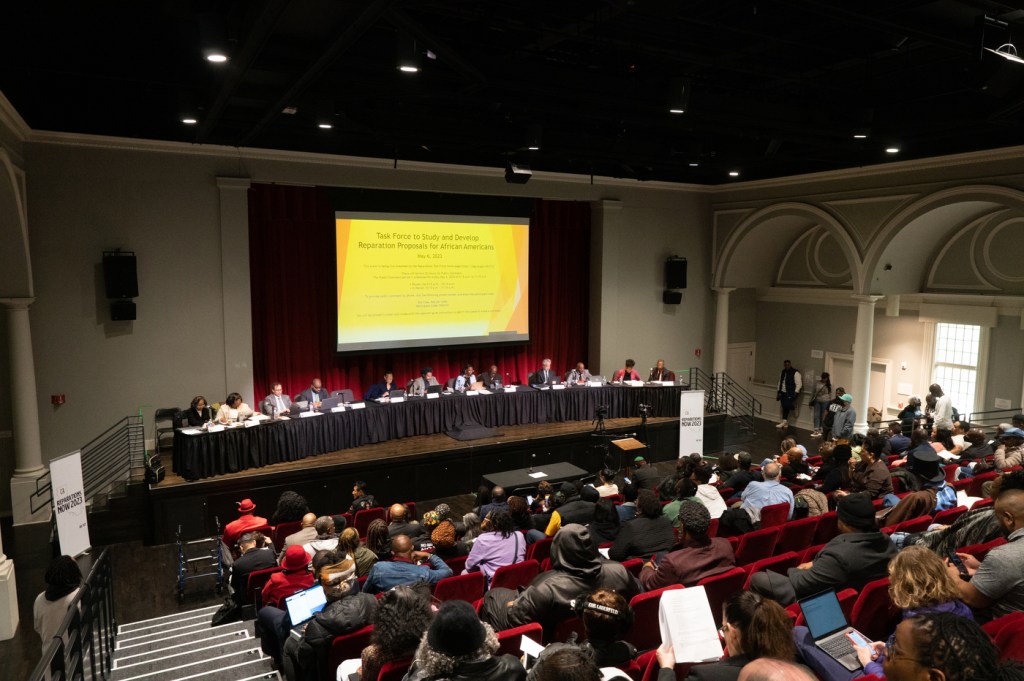
OAKLAND, Calif.—U.S. Rep. Barbara Lee, a 1973 Mills College graduate, was emotional when she called on California—as well as other states and the federal government—to pass reparations legislation.
“We bear witness to this historic moment. Reparations are not only morally justifiable, but they have the potential to address long-standing racial disparities and inequalities,” Lee said during a meeting of the California Reparations Task Force at Mills College at Northeastern University on Saturday.
The task force voted to approve recommendations for the state to publicly apologize for slavery and pay reparations to Black residents for generations of financial loss and discrimination.
Lee—a former Black Student Union president who invited the first African American congresswoman, Shirley Chisholm, to speak at the college in the 1970s—welcomed the public to campus.
More than 100 people attended the spirited session at Lisser Hall. The meeting was packed with residents and advocates from California and other states.
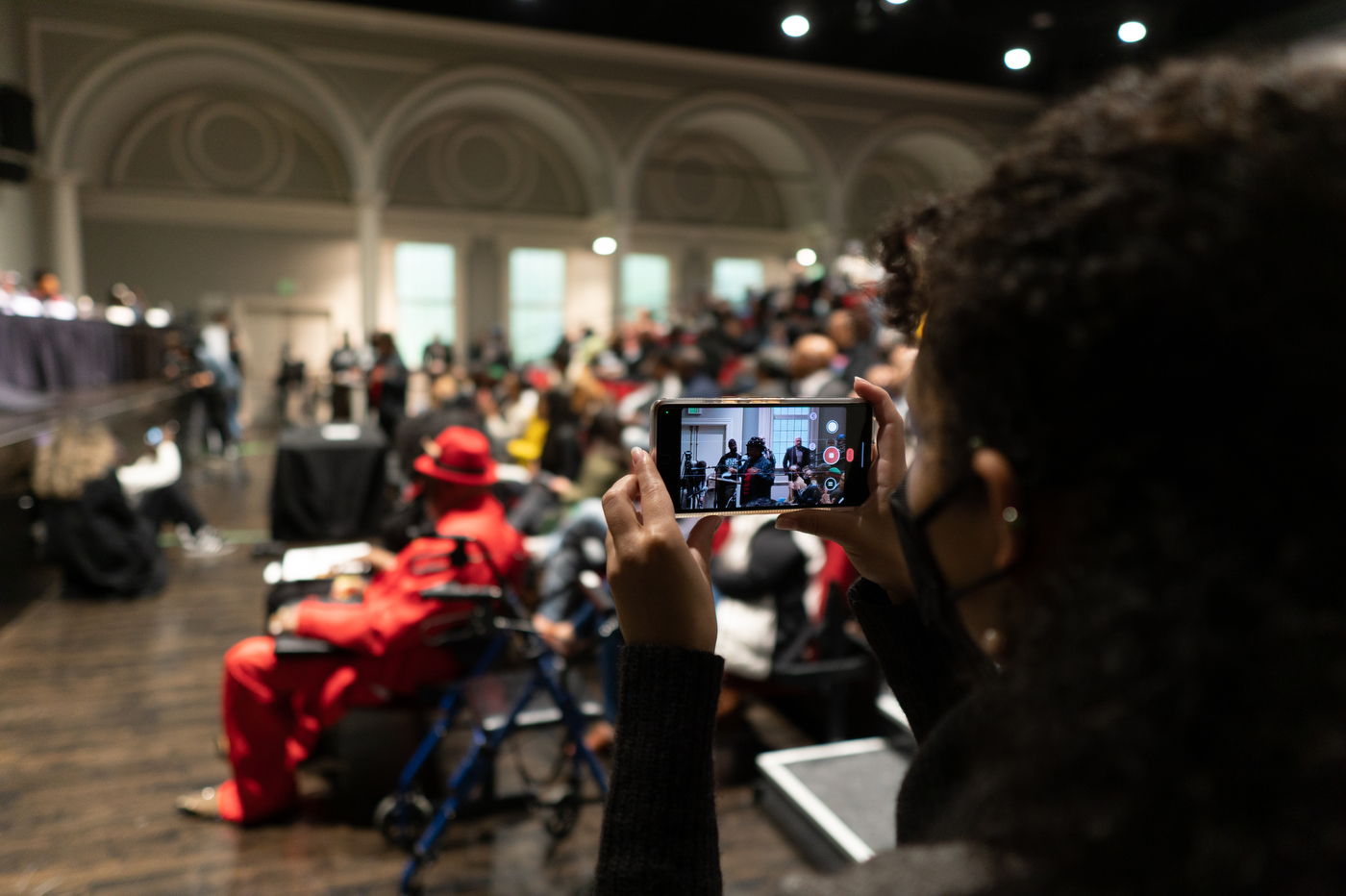
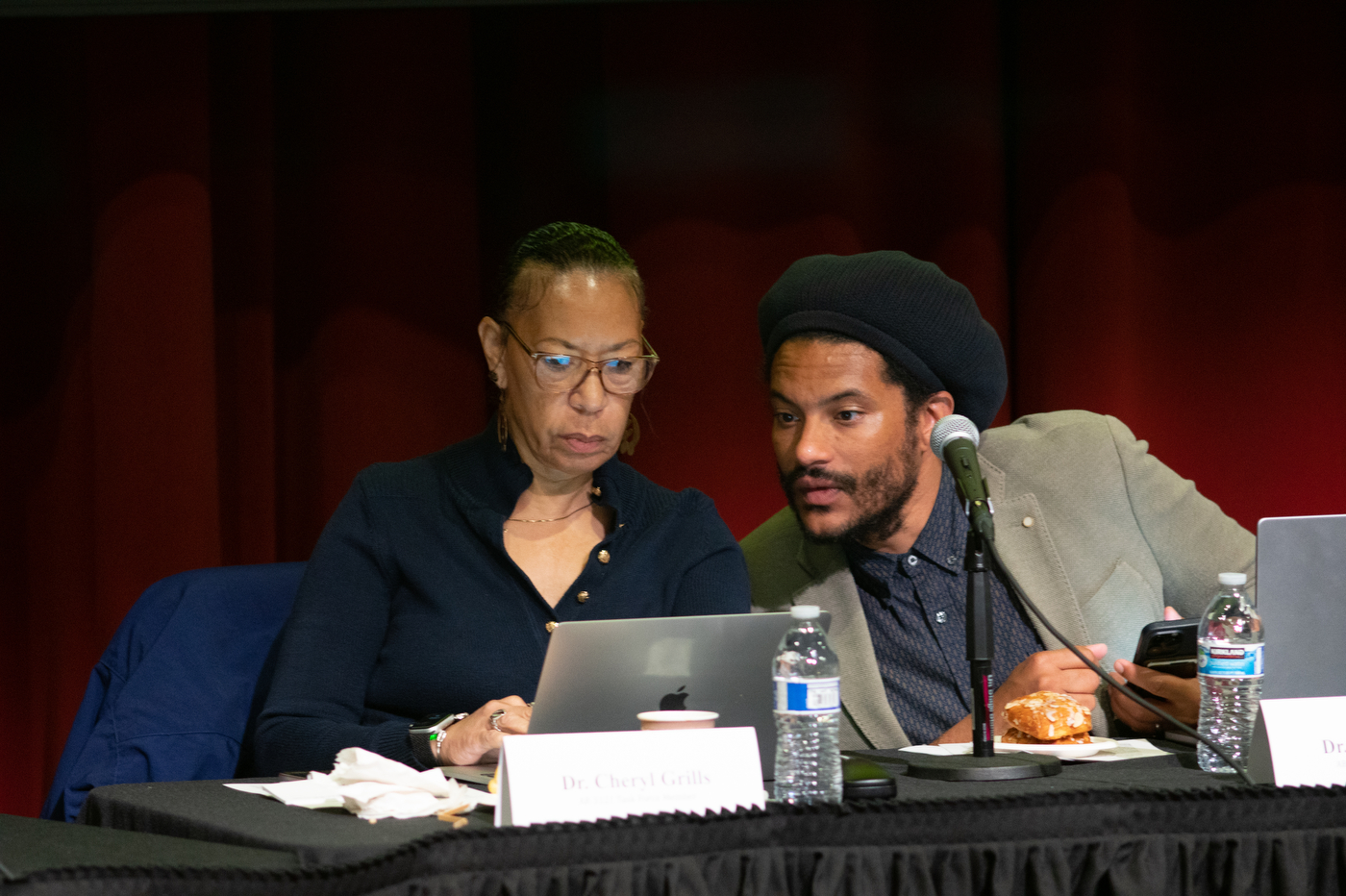
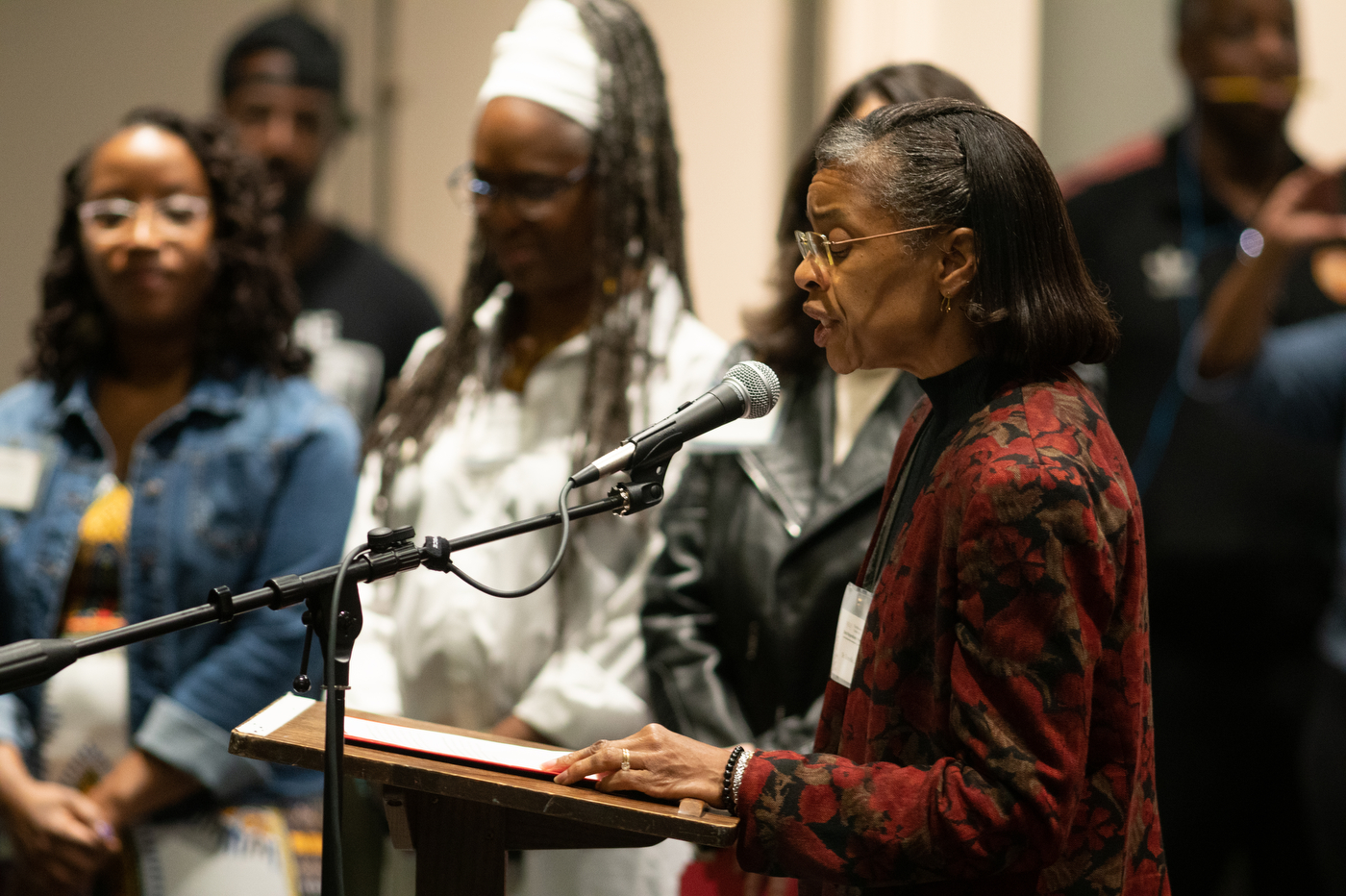
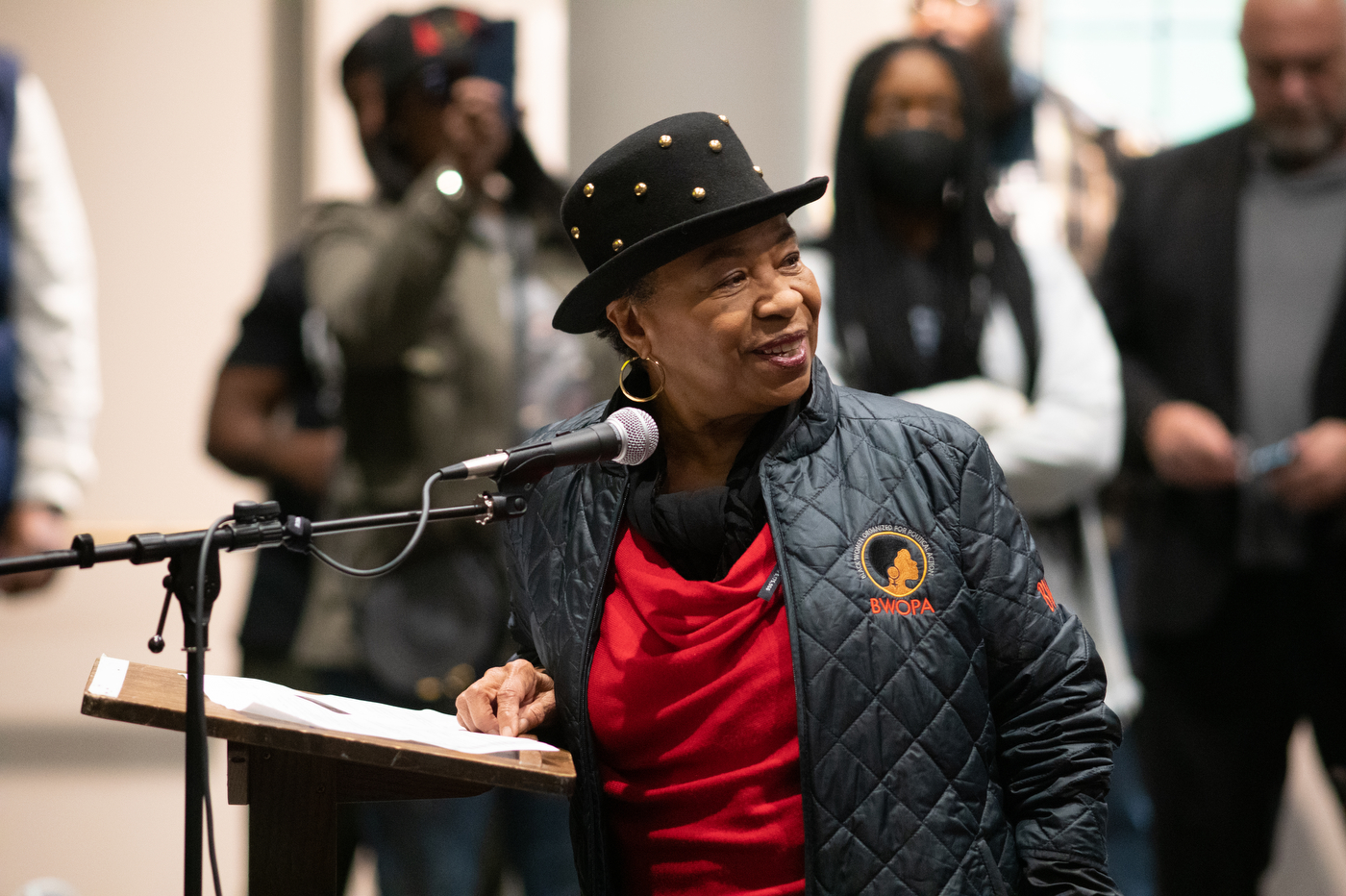
Ashley Adams, associate adjunct professor of public policy and co-chair of Mills College at Northeastern University Black Reparations Project, said students have been included in the dialogue surrounding reparations.
“Our students have been learning about Black reparations through our classes, our listening sessions, and the Black Reparations Conference held this past school year,” Adams said. “I would imagine student voices added to today’s dialogue would have provided further acknowledgement of the value of truth telling in Black history education.”
The Black Reparations Project, based at Mills College at Northeastern, has said one of the biggest roadblocks for reparations is a lack of understanding about what reparations are and what they’re designed to do, and the project has aimed to provide that information.
“It’s unclear at this time whether the California legislature will support the task force’s recommendations, but we remain hopeful that they will,” Adams said. “This is a crucial step towards turning the reparations recommendations into actual policy and making California the first state to offer reparations to Black Americans.”
The nine-person committee has met more than a dozen times over the past two years to study data and draft a report that outlines why reparations are owed, who should receive them and how much they should get. A final report is due to the state Legislature by July 1.
A 492-page interim report was presented to the legislature a year ago and addressed hundreds of years of Black disenfranchisement, including California’s history with slavery. Although not a “slave state” when joining the union in 1850, California passed Fugitive Slave Laws allowing enslaved people seeking refuge to be caught and sent back to their slave owners.
The interim report further outlined the state’s culpability for prohibiting interracial marriage and condoning “redlining,” which is raced-based exclusionary tactics in real estate stemming from 1930s policy that identified in red high-risk neighborhoods for government-insured mortgages designed to prevent foreclosures after the Depression. The red areas on the color-coded internal maps often included Black neighborhoods.
Reparation figures in drafts have ballooned to $800 billion, which is more than 2.5 times California’s annual budget.
People at Saturday’s public meeting unanimously spoke in support of reparations and levied criticisms at the task force, which has yet to clearly define eligibility guidelines, settle on payment amounts and educate residents statewide about the initiative. The first three communications firms contracted by the task force resigned and the current firm, Charles Communications Group, just started in September. The firm did not have a representative at Saturday’s meeting.
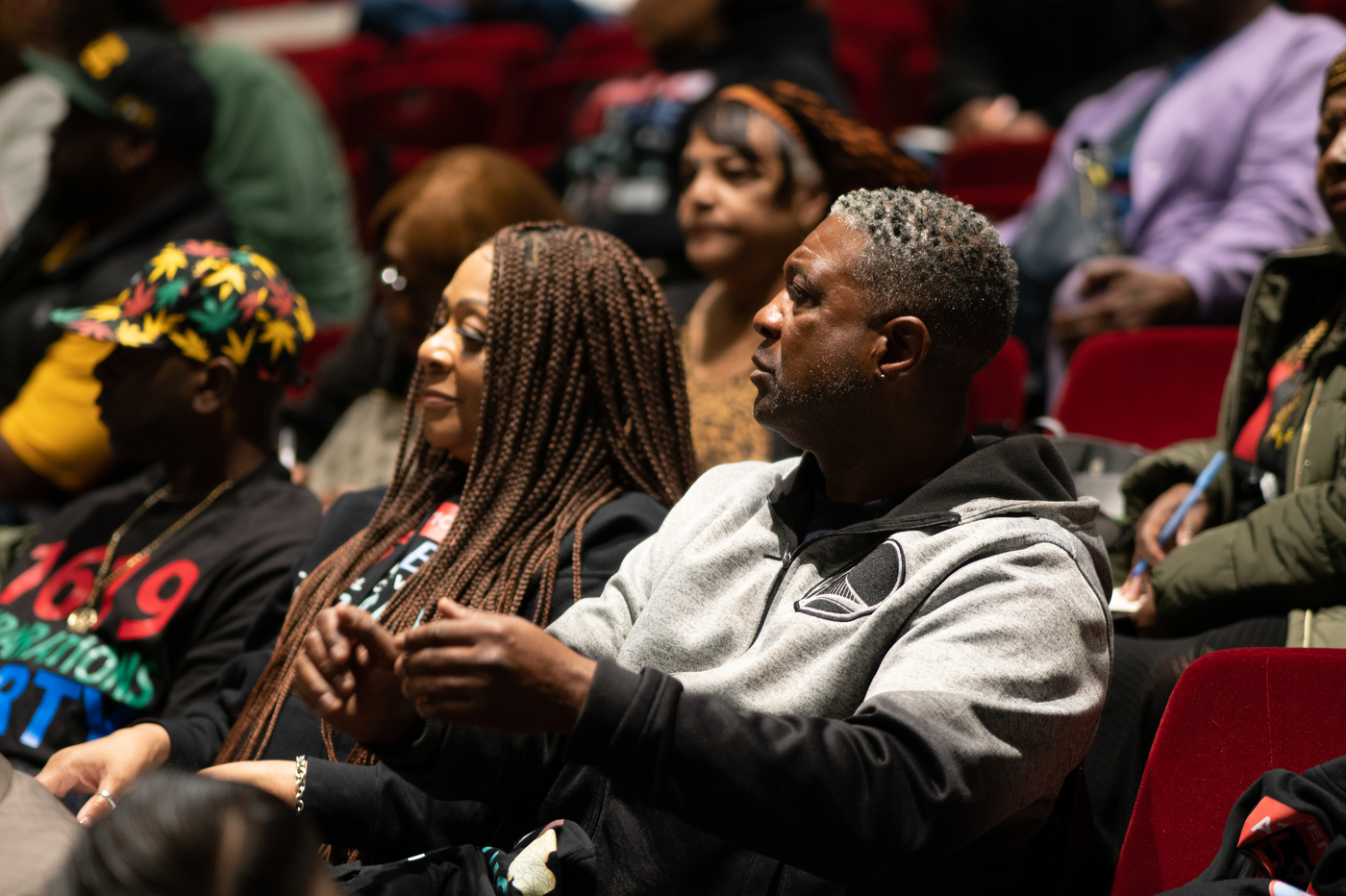
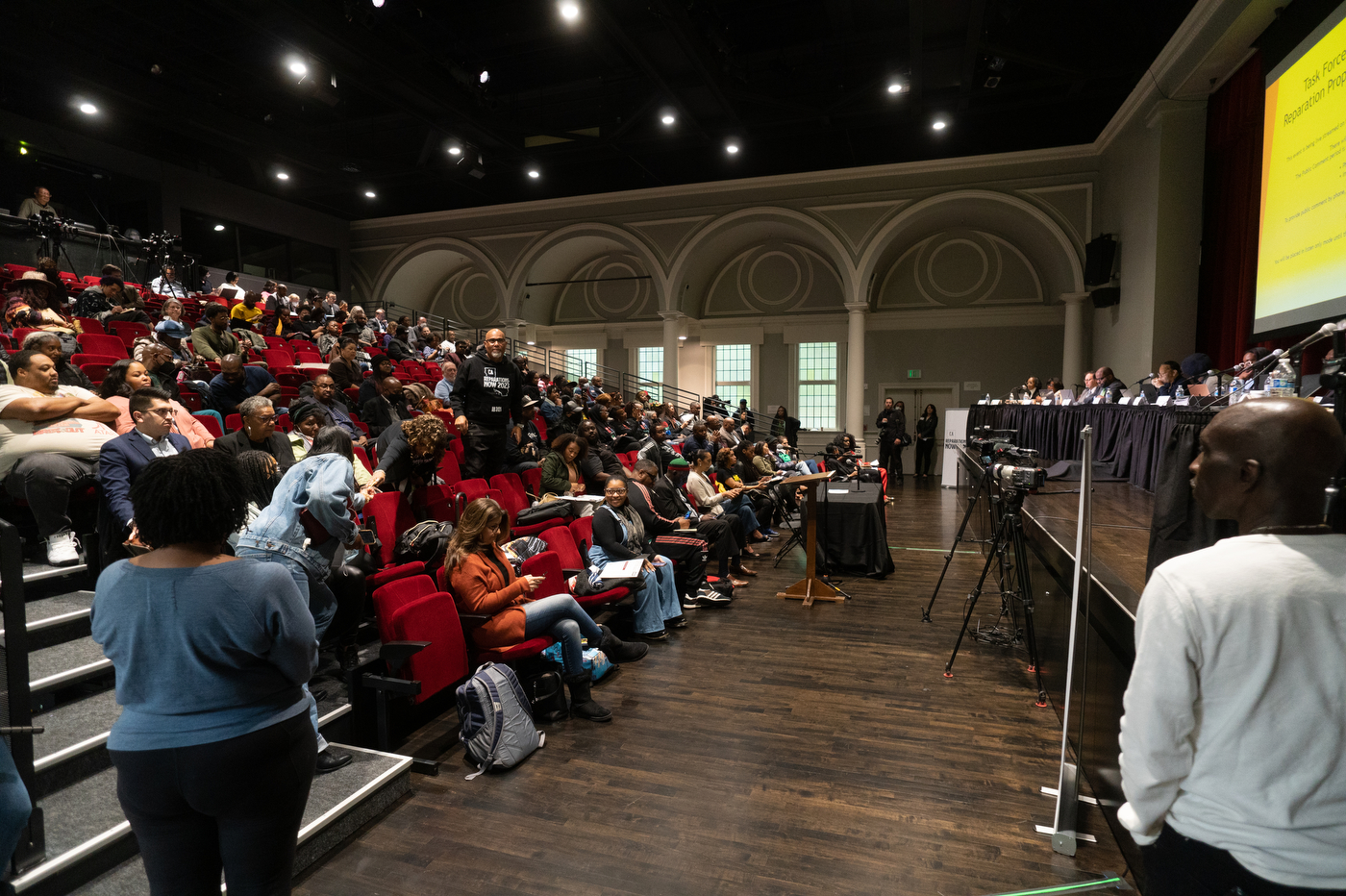
By all accounts, convincing Republicans, moderate Democrats and Californians who don’t believe they should be held accountable for paying reparations will be no small task.
Call-in comments during the public forum echoed sentiments that they are not asking for handouts, but what is owed to them for their ancestor’s stolen labor and being cut off from financial opportunities afforded to whites and other races.
In March 2022, the task force decided to make its reparations plan lineage-based, specifically “an African American descendant of a chattel enslaved person or a descendant of a free Black person living in the U.S. prior to the end of the 19th Century,” according to task force literature.
Task Force Chair Kamilah Moore, an entertainment and intellectual property attorney, said proving lineage shouldn’t be hard to do.
“A great number of African Americans can trace their lineage to the period of enslavement,” she said. “With technology today, it’s easier than ever before.”
But other members worried that those without access to documents and money, like people from foster care or the homeless, would not easily be able to prove their lineage. Their recommendations call for a state agency tasked with assisting residents in tracing ancestry.
Heading into the final hour of the daylong meeting, as the audience dwindled, members were still debating whether to rewrite major sections of the report and worried about running out of time to meet their deadline.
The task force will meet one final time publicly in late June before presenting the final report to the 80-member legislature.
Even though the fate of the bill is uncertain, Adams is proud that the Mills campus was host to such an historic meeting and hopes that California’s reparations efforts will prompt other states to follow suit.






